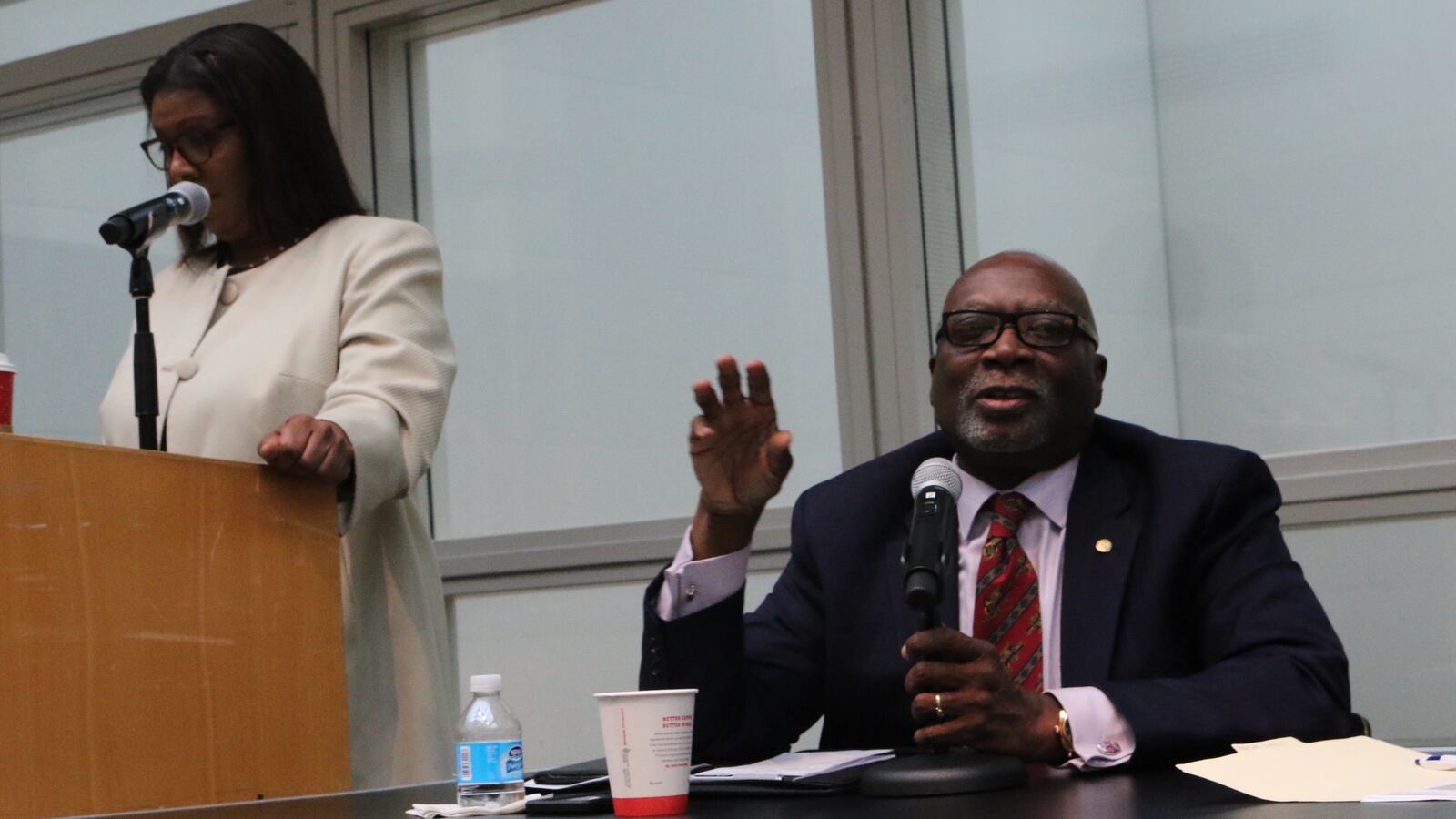The head of New York City’s principals union panned the education department’s flagship initiative to aid struggling schools Wednesday, ratcheting up his criticism of Mayor Bill de Blasio’s school turnaround program.
“Right now everybody is talking about, well, now it’s year three and what did we accomplish?” said Ernest Logan, president of the Council of School Supervisors and Administrators at a panel discussion held Wednesday. “To tell me that we’ve improved attendance 2 percent, 3 percent, I’m not impressed by it. And I don’t think anybody who’s paying money into the public schools is impressed by that.”
Those comments come at a delicate moment for the city’s $400 million Renewal program, one of the largest efforts of its kind to boost bottom-performing schools by flooding them with extra funding, social services and academic support.
De Blasio promised the program, which now includes 86 schools, would usher in “fast and intense” improvement within its three-year time frame — and year three is now underway. That assertion has made even the model’s supporters nervous, since research shows struggling schools can take many years to show significant progress.
But as part of Wednesday’s panel discussion on Renewal schools, moderated by Public Advocate Letitia James, education department officials pushed back on Logan’s claim that the program is floundering.
“There has been significant progress in our Renewal schools,” said Alonta Wrighton, executive director of school renewal for K-8, who cited gains in test scores and said attendance had increased at 91 percent of Renewal schools. “In many schools, they’re totally transformed.”
Still, progress at Renewal schools overall has been mixed. The vast majority of them enroll fewer students now than when the program started in 2014, and nearly half the schools failed to meet even 50 percent of the program’s benchmarks last year.
Some Renewal school principals have resisted the model outright. Michael Wiltshire, the former principal of Boys and Girls High School in Bedford-Stuyvesant, famously feuded with the school’s social service provider.
Logan acknowledged that he initially “saw a lot of promise” in the program, but quickly became one of its most proximal critics, assailing what he saw as bureaucratic micromanagement of principals and a sloppy rollout.
“If I told you that we spent $14,000-plus a kid and you know what you only got is a one percent improvement, you’d run me out the country,” he said Wednesday. “So the point is we can’t just talk about the little incremental things that we’re doing.”

